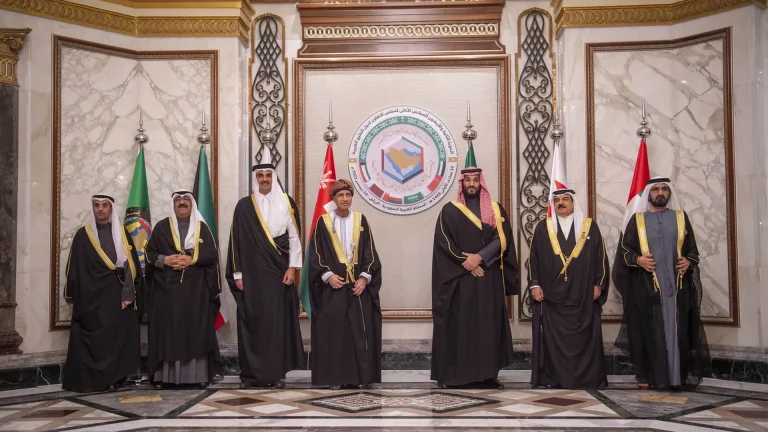🎧 Listen to This Article
In 2025, the Gulf Cooperation Council (GCC) countries Saudi Arabia, United Arab Emirates (UAE), Kuwait, Bahrain, Qatar, and Oman have introduced significant tax-related reforms affecting the tourism sector. While no new direct tourist taxes were imposed, various tax policies impacting tourism businesses and travel expenses signal an evolving fiscal landscape with far-reaching consequences for the region’s booming tourism industry.
Saudi Arabia: VAT Refund Scheme Boosts Tourist Spending
Saudi Arabia launched a landmark Value Added Tax (VAT) refund scheme for international tourists starting April 18, 2025. Tourists can reclaim the 15% VAT paid on eligible goods, including luxury items, electronics, and souvenirs, enhancing Saudi Arabia’s attractiveness as a shopping destination in line with Vision 2030.
This initiative lowers effective costs for foreign visitors and incentivizes higher spending, especially in the luxury retail segment. Convenient airport VAT refunds ensure a smoother tourist experience, positioning Saudi Arabia competitively alongside regional hubs.
UAE: Continuation of VAT Refunds as a Tourism Magnet
The UAE continues its VAT refund program, initially launched in 2018, allowing international visitors to reclaim 5% VAT on qualifying purchases. This well-established scheme remains pivotal to the UAE’s strategy to lure global tourists, reinforcing its status as a premier shopping and travel destination.
With seamless airport processing and minimal thresholds, the program encourages tourist expenditure and bolsters retail revenues, contributing positively to the broader travel ecosystem.
Kuwait: Introduction of Domestic Minimum Top-Up Tax (DMTT) and Corporate Tax Reforms
Kuwait implemented the Domestic Minimum Top-Up Tax (DMTT) for multinational enterprises in 2025, aligning with OECD guidelines to ensure fair taxation. While the DMTT doesn’t directly tax tourists, it may increase operational costs for multinational hotel chains and travel operators, potentially translating to higher visitor prices.
Additionally, new corporate tax measures targeting high-revenue businesses may pressure tourism-related enterprises to recalibrate pricing, subtly affecting consumer costs.
Bahrain: New Corporate and Excise Taxes Affecting Tourism Costs
Bahrain introduced a corporate tax for large companies and raised excise taxes on sugary drinks and tobacco products. Though not tourist-specific, these adjustments could indirectly raise tourist prices, particularly in hotels and restaurants where taxed goods are sold.
This reflects Bahrain’s broader economic diversification efforts but adds complexity to tourists’ cost structure.
Qatar: Corporate Taxation and International Tax Standards Shape Tourism Economics
Qatar’s 2025 introduction of corporate taxes and ratification of the Domestic Minimum Top-Up Tax are steps toward economic diversification and compliance with international norms.
These changes may increase operational expenses for multinational tourism businesses, leading to higher hotel prices, flights, and travel services, subtly impacting tourists’ budgets.
Oman: Corporate Tax Reforms and Double Tax Treaties
Oman has updated its corporate tax framework, requiring audited financial statements and ratifying Double Tax Avoidance Treaties with countries like Cyprus and Tanzania. Although tourists feel limited direct effects, hospitality and tourism businesses may adjust pricing due to these regulatory changes.
Oman’s ongoing tax reforms suggest future fiscal adjustments that could more directly influence travel costs.
Conclusion: GCC’s Complex Tax Reforms and Their Impact on Tourism
While no new direct tourism taxes emerged in 2025, GCC countries’ tax policy shifts from VAT refund schemes in Saudi Arabia and the UAE to corporate and excise tax reforms in Kuwait, Bahrain, Qatar, and Oman are reshaping the tourism landscape.
VAT refund initiatives offer financial relief to international visitors and enhance spending incentives. Conversely, corporate and excise tax reforms could increase prices for goods and services, impacting tourists’ overall expenses.
Travelers should stay informed about these changes to optimize budgets and expectations when visiting the GCC. Adapting to this evolving fiscal environment is crucial for businesses to remain competitive and support regional tourism growth.
The GCC’s tax evolution reflects broader economic diversification and global tax compliance trends, with potential long-term implications for regional tourism development.
For further details, clarification, contributions, or any concerns regarding this article, please contact us at editorial@tax.news. We value your feedback and are committed to providing accurate and timely information. Please note that our privacy policy will handle all inquiries.



